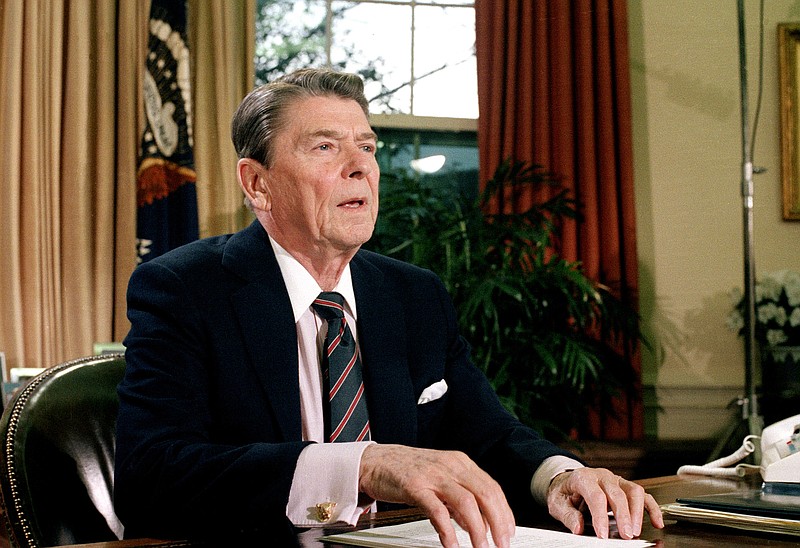For several hours last week, I dealt with fear and uncertainty. Thanks to the calming, expert assistance of the Chattanooga Police Department, the situation resolved, and I was at peace.
Our nation faces a far more serious and protracted combination of fear and uncertainty as we deal with the coronavirus epidemic. History offers examples of leaders who reassured a troubled population at such times.
Abraham Lincoln delivered his second Inaugural Address on March 3, 1865, 41 days before his assassination. As four years of devastating, civil war drew to a close, the future remained clouded. Would revenge dominate post-war policies? What would be the status of supporters of the Confederacy? Could the nation ever reunite?
Lincoln concluded his brief speech: "With malice toward none, with charity for all; with firmness in the right, as God gives us to see the right, let us strive to finish the work we are in; to bind up the nation's wounds; to care for him who shall have borne the battle, and his widow and his orphan, to do all which may achieve and cherish a lasting peace, among ourselves, and with all nations."
On March 12, 1933, eight days following his inauguration, Franklin Roosevelt delivered by radio the first of his "fireside chats." Banks had closed nationwide nine days earlier, and our entire financial system seemed on the brink of collapse.
In his address, Roosevelt declared a bank holiday and outlined the steps that would lead to restoration of trustworthy banking. His talk closed: "Confidence and courage are the essentials for success in carrying out our plan. You people must have faith; you must not be stampeded by rumors or guesses. Let us unite in banishing fear. We have provided the mechanism to restore our financial system; it is up to you to support and make it work. It is your problem no less than it is mine. Together we cannot fail."
On Dec. 9, 1941, two days following the attack on Pearl Harbor, Roosevelt concluded a fireside chat: "And in the difficult hours of this day of history - through dark days that may be yet to come - we will know that the vast majority of the members of the human race are on our side. Many of them are fighting with us. All of them are praying for us. For in representing our cause, we represent theirs as well - our hope and their hope for liberty under God."
On Nov. 22, 1963, hours after the assassination of John F. Kennedy, Lyndon Johnson spoke briefly as the presidential plane arrived at Andrews Air Force Base: "This is a sad day for all people. We have suffered loss that cannot be weighed. For me, it is a personal loss. I know the world shares the sorrow that Mrs. Kennedy and her family bear. I will do my best. That is all I can do. I ask only for your help and God's."
On June 26, 2015, Barack Obama delivered a eulogy for the people murdered nine days earlier in Charleston's Emanuel African Methodist Episcopal Church.
After an impromptu singing of a stanza of "Amazing Grace," he closed: "Through the experiences of their lives, they've now passed it (grace) on to us. May we find ourselves worthy of that precious and extraordinary gift, as long as our lives endure. May grace lead them home. May God continue to shed his grace on the United States of America."
Other presidents have assumed the role of Comforter-in-Chief: Ronald Reagan repeatedly, but especially following the Challenger space shuttle disaster on Jan. 18, 1986; George W. Bush on the evening of the 9-11 attacks.
The common denominators in these addresses are sympathy for those who have suffered loss, a call for unity of purpose among all Americans, and the invocation of God's blessing for the challenges that lie ahead. Fear is side-lined. The remarks transcend politics. The nation's highest purposes are restated.
Contact Clif Cleaveland at ccleaveland@timesfreepress.com.
